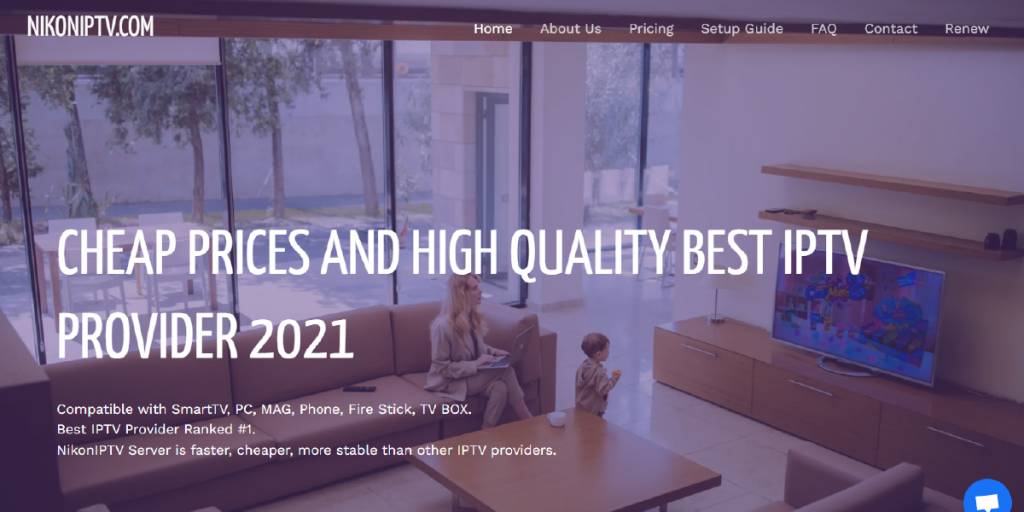Lately, the rise of Internet Protocol TV, also referred to as Internet Protocol TV, has transformed the manner we engage with media. Gone are the days when viewers were confined to conventional cable packages and fixed schedules. IPTV services have brought in a flexible solution, allowing users to enjoy a wide variety of content at any time and place they desire. This transition has not only changed our viewing habits but has also unlocked a universe of opportunities for content providers and consumers equally.
One of the most significant advantages of IPTV services is the power to provide tailored viewing options. With a variety of channels and on-demand options, subscribers can tailor their content based on their needs. Additionally, many IPTV platforms offer enhanced features such as cloud DVR capabilities, permitting users to record their favorite shows and watch them later at their leisure. As technology continues to evolve, IPTV stands out as a state-of-the-art solution that addresses the wide-ranging needs of today's audiences, making it an appealing alternative to conventional broadcasting methods.
Grasping IPTV Systems
IPTV, also known as Internet Protocol Television, is a technology that provides television content over the internet instead of traditional satellite or cable formats. It utilizes internet protocols to deliver data, enabling viewers to watch live TV or video-on-demand content via a broadband connection. This shift from conventional broadcasting methods to internet-based streaming has revolutionized the way we consume television, making it more versatile and accessible.
One of the main characteristics of IPTV is its capability to provide interactive services. In contrast to traditional cable TV, Internet Protocol Television allows viewers to pause, rewind back, or skip forward live broadcasts. Viewers can also utilize video-on-demand libraries, allowing them to choose what to view from a vast array of options. This level of interactivity greatly improves the viewing experience, catering to individual preferences and schedules.
Moreover, IPTV services often come with enhanced features that improve the content delivery experience. Many services provide multi-device support, allowing users to watch their preferred shows on TVs, smartphones, tablets, and computers. Additional features such as program guides, customizable playlists, and the option to record shows further distinguish IPTV from traditional TV services, making it an attractive choice for modern viewers.

Benefits of IPTV Solutions
Internet Protocol Television solutions offer considerable versatility when it comes to content consumption. In contrast to traditional television, subscribers can stream shows at their convenience, enabling them to choose their viewing content and at any time. This flexible capability integrates seamlessly into the fast-paced routines of many individuals today, permitting them to access their preferred programming without adhering to a set time. Viewers can easily stop, rewind, or fast-forward through content, which enhances the viewing experience and providing more control over how content is consumed.
Another major advantage of Internet Protocol Television is the diversity of programming that is available. With Internet Protocol Television solutions, viewers can access a wide array of channels and video libraries, including international content and specialty content that may not be accessible through traditional cable or satellite options. This vast offering ensures that there is something for everyone, catering to diverse tastes and interests. Furthermore, many IPTV services offer exclusive programming and original content, enriching the available selections beyond what is typically found in traditional television offerings.
IPTV solutions also often come with additional features that improve user experience. Many platforms include interactive features such as electronic program guides, the capability to record shows, and multimedia tools that allow users to engage with media in innovative ways. These interactive options make it easier to find different content and keep track of favorite programs. Additionally, the integration of multiple gadgets, such as smartphones, tablets, and internet-connected televisions, allows subscribers to enjoy their preferred programs on various screens, providing ease of access and availability that is hard to match with traditional TV services.
Contrasting IPTV with Conventional Broadcasting
IPTV offers a notable edge over conventional TV by employing IP technology, which enables for a more versatile and personalized viewing experience. Unlike traditional TV options that typically depend on satellite dishes or cable systems, Internet Protocol Television can be utilized through any internet-connected device, enabling viewers to view content on smartphones, tablets, smart TVs, and others. This accessibility means that users can enjoy their preferred shows and movies anytime, wherever they are, free from being restricted to a specific location or device.
A further notable contrast is the control and personalization that Internet Protocol Television provides. Traditional broadcasting often comes with a rigid schedule where users must follow programming times, limiting their viewing flexibility. In contrast, IPTV offers usually include on-demand content, allowing users to choose what to watch and at what time to watch it. This service also frequently features features such as pause, rewinding, and record, enhancing the overall watching experience and making it more interactive and personal.
Additionally, IPTV tends to offer a wider range of content, including specialized channels and global programming that may not be through conventional TV. This broadened variety serves varied interests and preferences, enriching the user's media consumption experience. With abonnement-iptvfrance to include interactive features, educational content, and even user-generated streams, IPTV is distinct as a contemporary solution that aligns with today’s shifting entertainment landscape.
